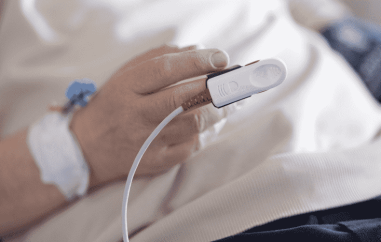Is the end of measures approaching soon?
When will we finally be rid of the coronavirus and all its measures and restrictions? That's probably what millions of Germans have been asking themselves for over a year now. Because actually, many hoped that once vaccination was in place, everything would return to normal and relax - but as it turns out, the infection figures in Baden-Württemberg and other countries are high again in the second Corona late summer and the vaccination campaign is faltering. Still, the measures and regulations to contain the pandemic could soon be a thing of the past.
Because - at least if Andreas Gassen, the head of Germany's panel doctors, has his way - all restrictions should be lifted as of October 30. This is what he now demanded in an interview with the Osnabrücker Zeitung. With this announcement, Gassen then also hopes to quickly achieve a vaccination quota of 70 percent. The date mentioned would give everyone who wants it still sufficient time to be inoculated up to the deadline.
But with this bold statement, the head of the panel doctors promptly runs into headwind from other health experts. Both politicians and physicians are largely skeptical. Right at the front with it, the SPD health expert Karl Lauterbach. He gives on Twitter to consider: "It is fully underestimated, how heavy the next months can still be without a higher vaccination quota. SARS-CoV cannot be defeated with a crowbar."
And Lauterbach is not alone in this opinion. Lower Saxony's Health Minister Daniela Behrens (SPD) is also joining in the discussion. She considers an end to the Corona measures "still too reckless."But Gassen, the head of the panel doctors, has a very concrete reason for his demand. Other European countries such as Great Britain and Denmark are already going down the path of openings. In Denmark, this is due to the fact that almost 75 percent of people are already fully vaccinated against Corona. Because of this vaccination rate, there is no longer any need for 3G detection at all there - even at major events with tens of thousands of spectators, there are no longer any restrictions or controls.
The UK heralded its large-scale opening strategy with a so-called "Freedom Day". In mid-July, the time had come and the British were literally "free" again. Surprisingly, the infection figures here initially declined, but as reported by Editorial Network Germany, the incidences rose steadily again from August onwards. More than 100 deaths a day were regularly reported.
Nevertheless, British politicians are not deterred. Deputy Prime Minister Michael Gove had not ruled out the possibility that hundreds of deaths per day would have to be accepted if necessary. Downing Street assured: "There is no concrete number of acceptable Covid victims."
The big difference between Germany and countries like Denmark and the UK is definitely the vaccination rate. That's because these two countries have a striking advantage over the Federal Republic. While the number of fully immunized people in Germany is 63.4 percent (September 22), the UK is at almost 67 percent - Denmark is even better with 75 percent of its population fully vaccinated.
Due to the stagnating vaccination rate, however, Germany has so far opted for a different strategy. In large parts of the Federal Republic, 3G applies in public areas - meaning that anyone who wants to go to a restaurant, movie theater or museum must prove that they have tested negative, have been vaccinated or have recovered from Corona.
With its new Corona ordinance, Baden-Württemberg is even going one step furtherand only allowing in vaccinated and recovered people above a certain intensive care bed occupancy. Those who are not fully immunized against Covid-19 must then largely refrain from public life. For the state government, this is probably the means of choice to put unvaccinated people under pressure and thus get the vaccination campaign going again.
With 2G, the government hopes not to have to impose a new lockdown this winter. A strategy paper from the Robert Koch Institute (RKI) says that measures should be taken to keep the incidence of infection under control, "but with individual measures rather than facility closures or restrictions on entire sectors of society."
The RKI has also produced updated modeling showing that "ending all protective measures would result in a very substantial increase in infections, with the well-known consequences for those who become ill and for the healthcare system," epidemiologist Hajo Zeeb told Science Media Center. According to the report, the vaccination rate is currently still far too low to prevent a scenario with many deaths "with a high probability."
According to the RKI, the measures could only be lifted when at least 85 percent of people are fully vaccinated. Only after this vaccination rate does the so-called herd immunity kick in and the pandemic can be kept under control, the RKI experts are certain. However, this situation is not expected to occur in Germany this fall because - according to the strategy paper - "the expected vaccination rates, especially among younger adults, are not yet sufficient for this purpose."















































